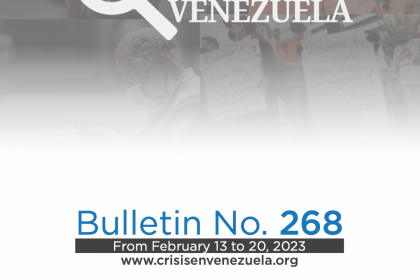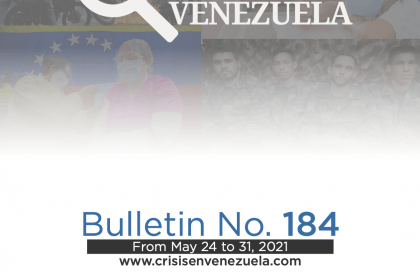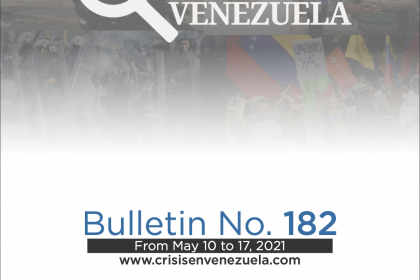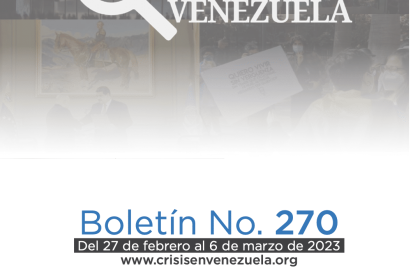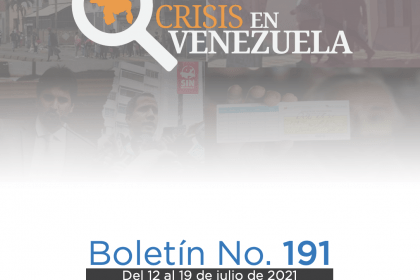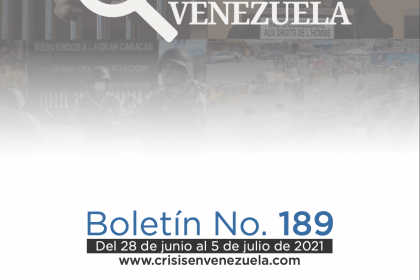The pro-government propaganda with the intention of projecting the idea that they have overcome the serious problems that caused the humanitarian emergency in Venezuela or that they have made headway in their solution, clashes with the everyday reality suffered by the population. High inflation still persists, as well as the serious problems regarding drinking water supply, failures in electric power services, the serious crisis concerning public health attention, and the runoff in the educational area in every respect.
In addition to this, the institutional weakness both by the lack of independence as well as by the inefficient management for giving responses to citizens’ requests and claims must be included. For example, a justice system that is unable to lessen procedural delay, hearings being repeatedly suspended, and physical structures unworthy of staff or users.
The closings of radio stations persist, over 260 political prisoners that haven’t been released, police officers and military officers persist in practicing extrajudicial executions, including massacres, leaving 10 or more murders in each operation without the Prosecutor’s Office willing to perform genuine investigations, or an Office of the Ombudsman raising its voice against young people’s murders in low-income sectors. The fundamental factors that led to and maintained the Complex Humanitarian Emergency (CHE) haven’t disappeared, and the indicators that in Venezuela there isn’t a democratic government still exist.
The new study, Psico Data Venezuela, published by the Universidad Católica Andrés Bello on March 1st, 2023, shows us empirical data for the first time on the effects of this crisis, the population’s beliefs and attitudes. A concern, sadness and anger average of 17.74 (out of 26) was obtained, the personal sense of control average was 30.15 (out of 39), 81% think that people can’t be trusted, and the main cause of stress is due to economic problems.
The scenario this new survey shows us is a society that, while focused on its search for survival, has witnessed how mistrust has increased, only counting on family support and, there’s a widespread perception that we have no control over what happens to us because of the massive hazardous effect of a situation that has no respect towards people’s rights.
The restitution of the economic, social and cultural rights and heeding the causes of the Complex Humanitarian Emergency will allow Venezuelans to reclaim their dignity and freely undertake their life projects.
In the context of the current crisis in Venezuela, human rights organizations maintain a continuous effort to record and document the systematic violations of civil, political, economic, social and cultural rights of the population in order to accompany the victims and give visibility to these violations before the national and international community.
In this sense, the Crisis in Venezuela bulletin emerges as a weekly space in which, as a human rights movement, we bring together the situations that currently reflect the humanitarian crisis that Venezuela is going through.
The Crisis in Venezuela newsletter ESPAÑOL | ENGLISH

